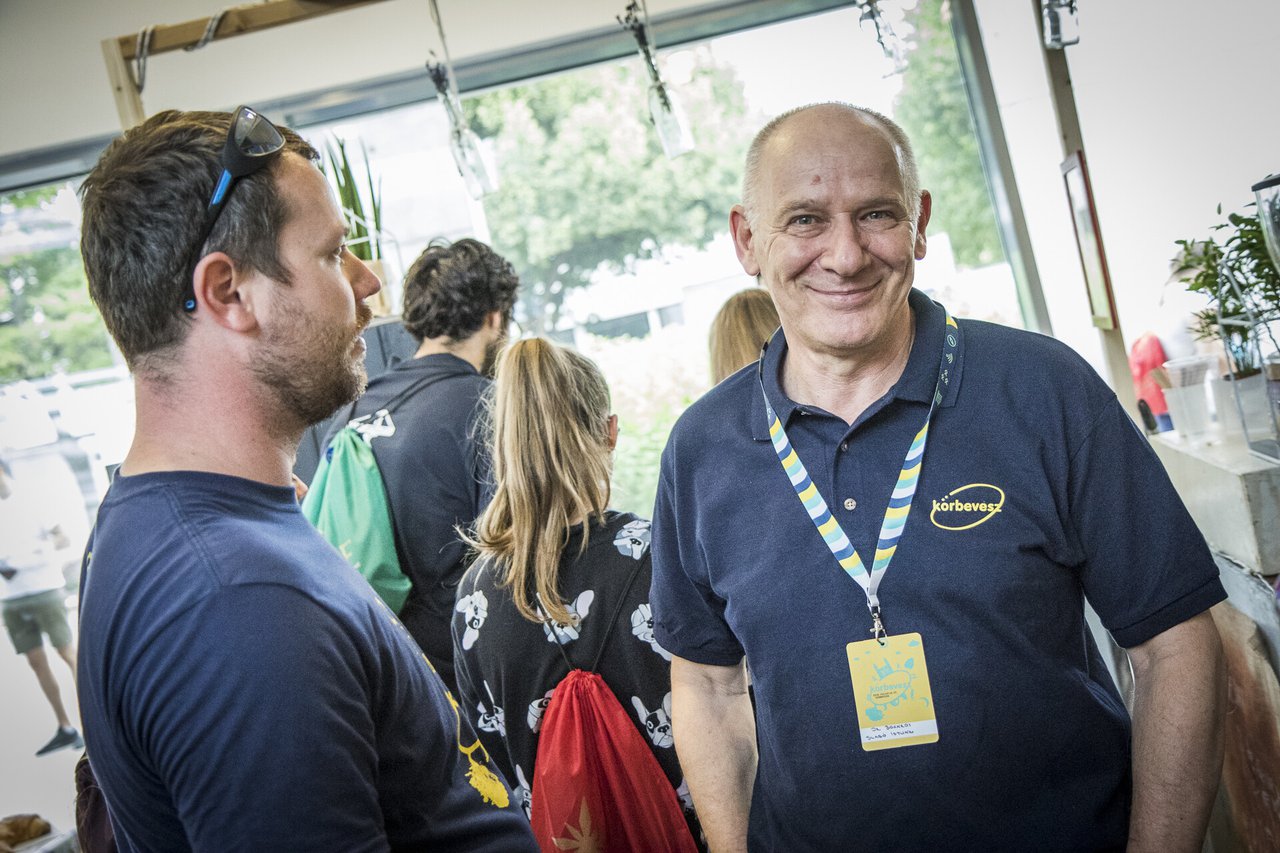The Church didn’t receive its mandate from the world, this is why the outgoing Ministerial President of the Synod didn’t care about the expectations of society during his long service. Bishop István Bogárdi Szabó says: “We have to answer to Jesus Christ. Did we achieve what he sent us for?”
Saint Augustine says that the human heart is constantly bending towards itself and turning away from God. Did your heart stand its ground throughout your eighteen years of challenging bishopric service?
This phrase has been used by many after Saint Augustine: Anselm, Luther, Calvin and Barth, too, for example, but they meant something different, not exactly a dramatic persistence. Man turns from God when he takes credit for the gifts that God’s mercy has blessed him with. Since you’ve mentioned this connection, it is important to note that struggle has harmful adverse effects: we are prone to believe that our resistance is the result of our own heroism, effort and merit.
How do you look back on your leadership service in the church? Was it a gift?
Is it a gift when someone is trusted with this mandate? I can’t decide, because you don’t have to accept it. If God provided everything that is needed, then it can be interpreted as a gift. I interpret it as a commission, because responsible electors are trusting me with the office. Many people were praying for me, and that was a huge gift. Of course, the fact the mandate expires one day is a gift as well.
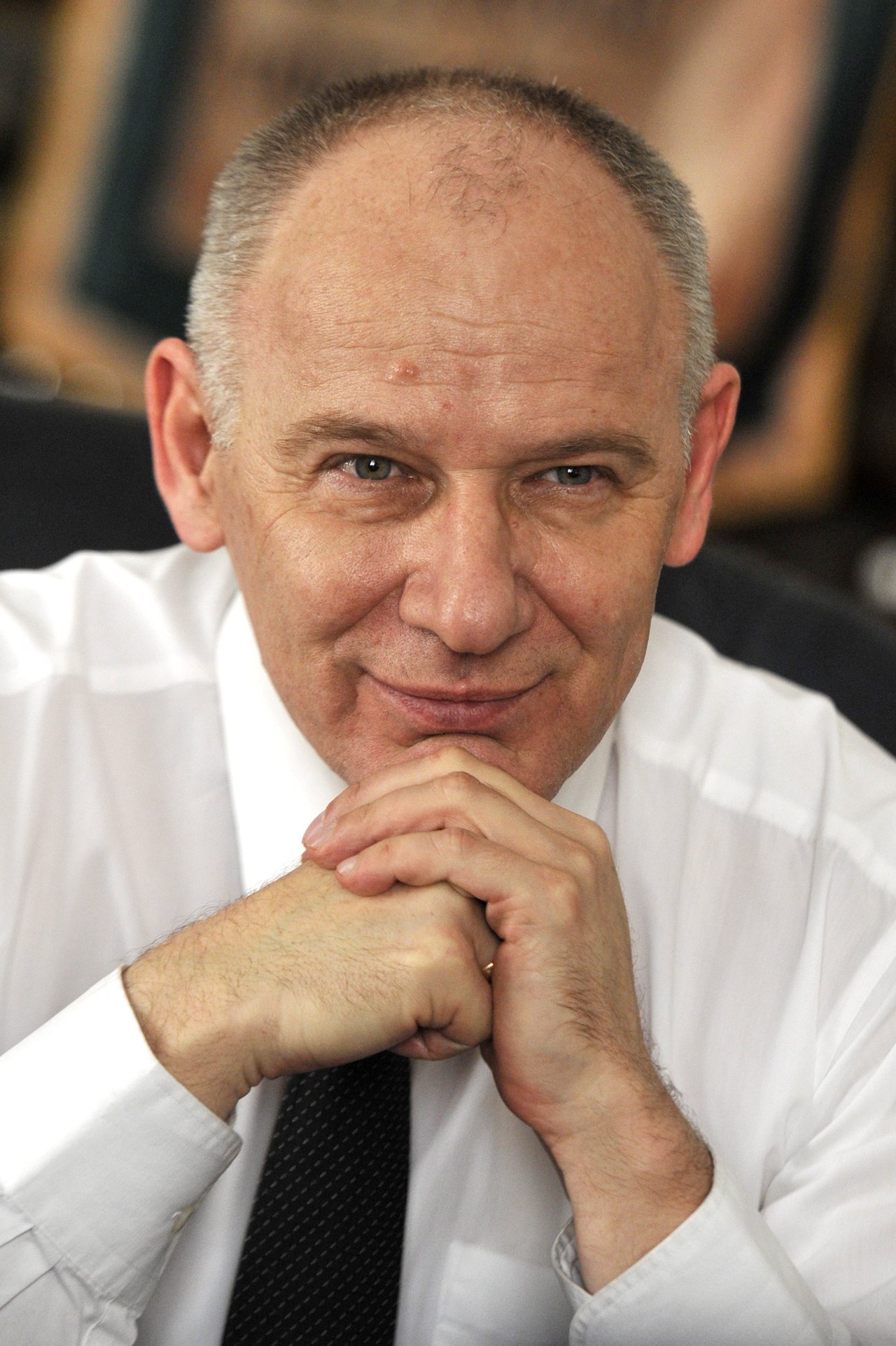
I think many people pointed fingers because when you were younger you wanted to abolish the office of Bishop . What do you think about that now?
The church districts are repeating the administrative work of the dioceses in many aspects. It would be much more reasonable to direct these immediately to the Synod without involving the four districts. It wouldn’t bother me if the next generation decided to make things go faster and more efficiently by excluding the church districts. Although if we look at the differences between what the Synod is (legislature, educational and representative) and what the common language calls Synod (they mean the Synod Office, incorrectly), the exclusion of the church districts is not too obvious anymore. I am trying to observe the termination of the unnecessary church governmental structures from a point of view which would encourage decision-making within living communities and not in an abstract, mostly official top-level organization.
How did you see the church eighteen years ago and how do you see it now that you can look at it from a larger perspective?
The task is ongoing. I don’t think that eighteen years ago it was harder or easier to obey God, preach gospel and live an impeccable, clean life according to the Ten Commandments. The circumstances changed, but eighteen years mean a very short period of time in the church, even when I feel like I’ve given everything I could to this service. I don’t look at my bishopric time by itself, but I fit it into the 30s and 40 year span, which began before the system change. This contains my own thoughts and consciousness about the path of the church and our job as Reformed Christians in Europe. The Communists are gone, the dictatorship ended, and nobody told the pastor what to preach and not to preach about. We thought that we were free, and we can do whatever we want, but it is not true. We have to do what God wants us to do. And this is surely a very long story…
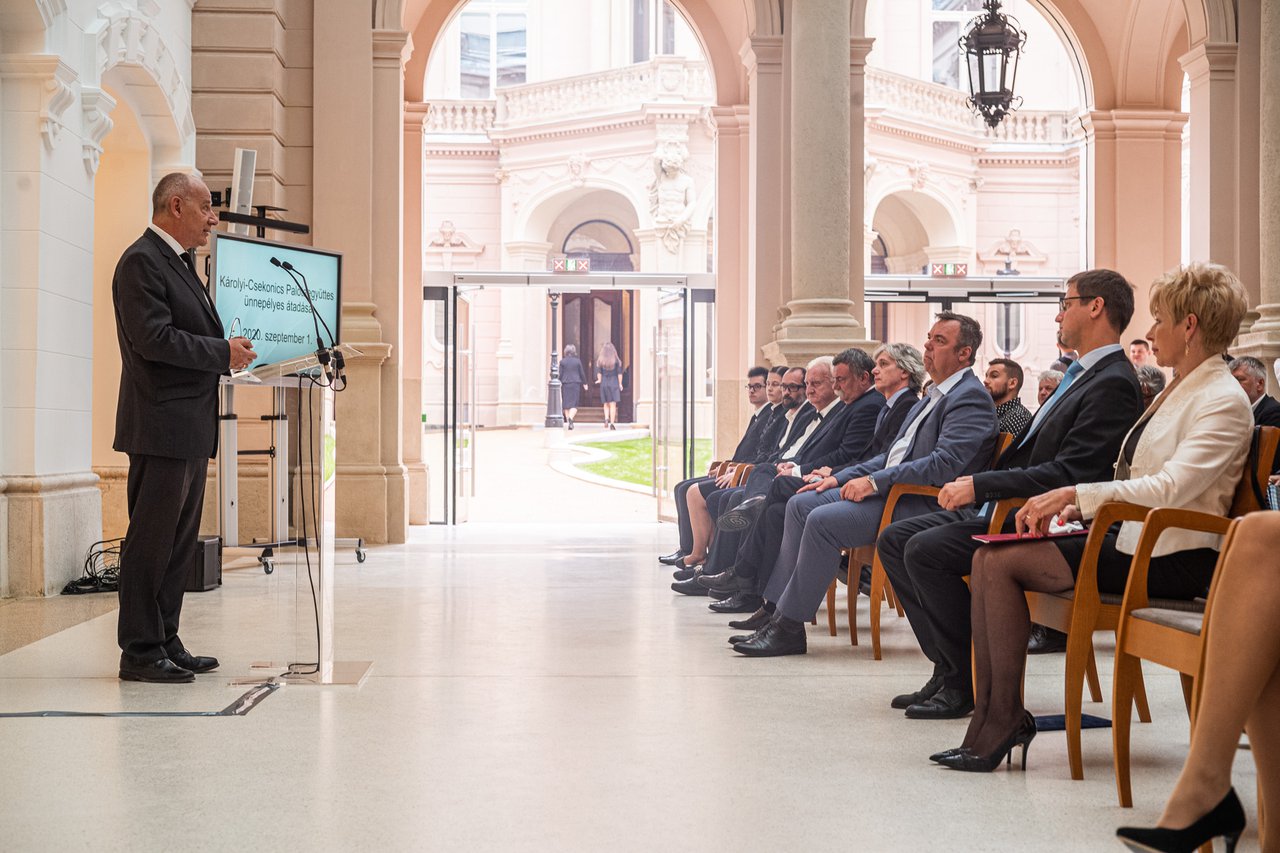
Where did you try to steer the ship of the church during the eighteen years of your bishopric and six years of Synod ministerial president service?
The church can be compared to a ship in a storm many times: tossing and turning but it doesn’t sink. Although there should be a compass on the deck. The ‘helmsman’ of the church has to try and convince everybody about the original direction, the point of the church. According to my faith, the mother church is the only community where the decisions, goals and matters are all made up by people, which means the church is exactly like us, but the final goal is still from God.
I’m asking about the direction, because western churches are often saying that they are heading towards progressive movements. I’m thinking about closing churches and blessing homosexual marriages. How is it in the Reformed Church in Hungary?
There are many strong communities with deep faith living according to God’s order, many theologians with great views in the West and there are many of those who are idolizing the progressive movement here at home as well. But the difference between bodies representing churches is conspicuous. If my bishopric service had failures, they were rooted in my inability to make them understand: we can easily go from one extreme to another, from the old dictatorships to the dictatorship of liberalism. The following generations don’t necessarily understand why we have to be careful and stay conservative. Yet, indeed we once paid the price of progressive ideology when a red flag and a sickle hammer led the advance against the retrogrades in a peace war. Moderation is not barren conservatism, but natural human consideration. This is however only half of the story. The western news makes me sad, because the church can only stand for the truth of the gospel if it has a complete and deep conviction, a stable faith. I ask, where are those points, where can the stable commitment of the gospel be seen? This shouldn’t be as loud as the noise of the progressive movement, rather a quiet loyalty which is worth more in the long run. The loud volume is in vain, when the melody is false. And the melody of the progressive movement is false.
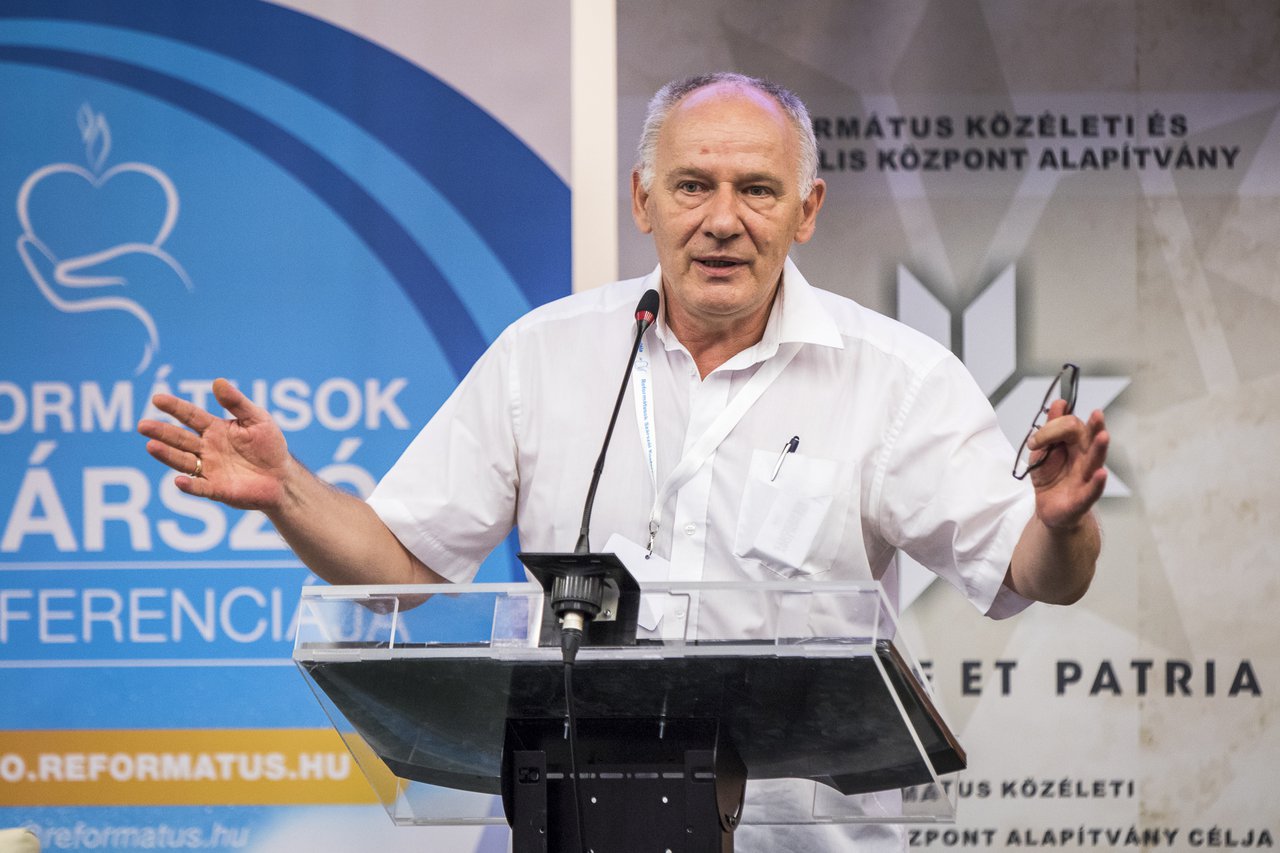
If I understand correctly, it is the duty of the church to lead people to God.
Most of the people are looking for a connection with the transcendent and their thirst for God needs to be satisfied. The church has to provide answers to questions regarding life, asked in a correct or in a wrong way. We shouldn’t forget that Jesus Christ says in his Mission Statement: therefore, go and make disciples of all nation. Besides this we only have one order, which is to obey Christ.
So, we go to a heavy metal concert and to football hooligans?
The list goes on and on…
I have a feeling about what you mean, as there is prison and hospital pastoral service, drug mission, homeless mission, deaf mission, Roma mission and I could go on, but I think there is still a blind spot.
There are so many communities and programs that started regarding to this, that we are almost completely buried by them. What about the normal ones? What about the ordinary, Hungarian person, who is not deviant, didn’t fail at school, does not beat his wife, and just lives his simple, workaday life in a block of flats or somewhere? In the heat of mission, the case of awakening and the prayer for awakening are sadly neglected. One of the burning questions of my leadership was about this defect. How did they separate? Can one of them be done at the expense of the other? I hope my successors will find the balance.
In my experience, society judges the church whether it provides a helping hand to those in need. Whether or not the average person comes to faith is the least exciting question in regard.
The church didn’t receive its mandate from the world, so I don’t care about that. I do not intend to be the goody-two-shoes of society’s expectations. We have to answer to Jesus Christ, whether we have achieved what he sent us for. The 20th and 21st century shows a strong social need to be good, fair, kind and give everyone what they deserve. I can calmly state that this is the watershed here. Of course, I know it too, that in the age of social media everyone can put together their picture about what a good church should be like. And I note: we have contemporaries, not a few, who could love a church they have nothing to do with. Interestingly we often say the same too, as the good people of our age, but in an old-fashioned, dusty way.
You said previously that there’s a need for mission and credibility in the church. According to this, the mission to normal people could be the main front-line?
If we return to your first question, that the human heart is constantly bending towards itself, then we have the task. In the Biblical sense, no one is normal, since the prehistoric man is there in all of us. There is an absolute need for social missions. I was a drug mission founder, a prison pastor, I played in a band (not metal), I played in B-Team and organized a congregation in the messy blocks. I just tried to express just now, that I feel that we have become our own contemporaries too much. We don’t think about what it’s like when presbyters tyrannize a priest or when one Christian harms another. It is obvious that a person reborn by the Holy Spirit is not a good person in civil judgment. Let me tell you an example. In one of my pastoral care conversations, a serious believer Christian accountant said that the leader of the company wants to cheat taxes and if he says no, he will find himself on the streets. What should he do? The leader of the company also goes to church, a different one, and lives a seemingly holy life. And at the company he says: this is how the world works, this is the only way to stay on your feet…
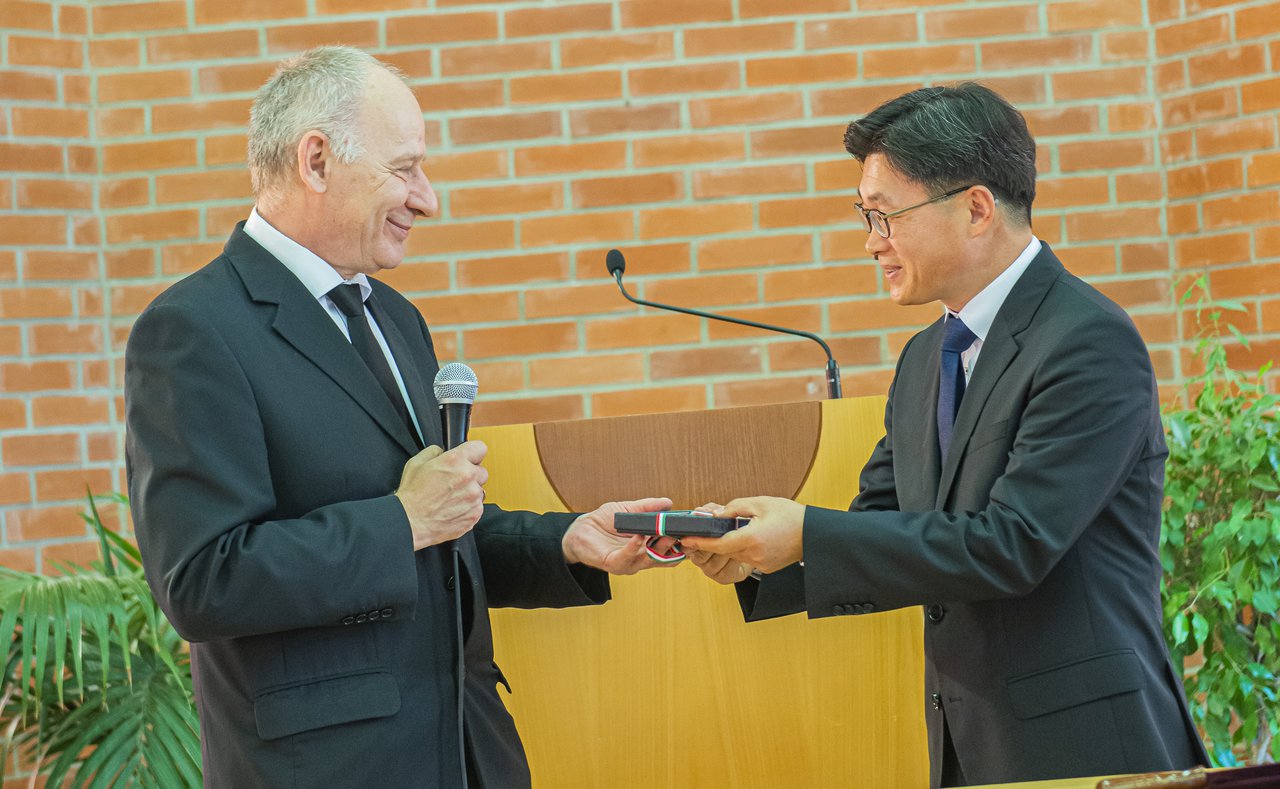
What do you advise in this case?
Pay the taxes! It is written in the Letters to the Romans. Pay the taxes, customs, do not owe anything to anyone, but only the love for each other! It is a huge struggle to love each other with divine reality and not reduce love to a sticky syrup to be poured on everyone.
Now that you mentioned the Word: do not owe anything to anyone! I understand that throughout your bishopric service, you advocated that the church should not owe anything to the banks. At the beginning of your church leadership, you repaid all the loans of your church district, never resorted to a loan, and warned everyone not to take out loans. Why?
God’s care was needed when we had to free the Reformed Church District in Dunamellék from all the debt and to convince the congregations not to take out loans. I’ve inherited the church district with debt and we paid back the last installment just before the debt crisis in 2008. Then, three months later the crisis came, and half of the world still suffers from it to this day. I consider it a huge grace that we have managed to repay our loans because one cannot stand up straight if he is a slave to debt. The church has a material life too: from the pastor’s payment,through the heating of the congregational hall, to the summer camps—everything costs money. But we are much freer if these costs can be covered by our own wealth. The Book of Parables teaches the same.
You have always emphasized that the church lives in its congregations and perhaps there have never been as many Reformed churches built or renovated as during your bishopric service. Do this thought and action directly relate to each other?
It is a tricky question, because the church, the congregational house and the parish are built by the congregations themselves. The fact that they can receive help is another question. It is indeed a great gift to dedicate a church. It is worth being careful with numbers however, because at the end of the 18th century and between the two world wars, many more churches were built, and countless ruined churches were rebuilt after the wars. Rather, I am glad that through our freedom, we can renovate our cultural buildings and the members don’t have to go to ice-cold churches with broken roofs and torn floors. As the population of Hungary has been constantly moving over the last fifty years, a large number of new congregations were formed, indeed.
The buildings were renovated, but how do you see the team of pastors?
According to my generation I belong to that group of losers who were taught: the church will die out. I can see the loyal generation of my parents before my eyes and also the free and enthusiastic one after the system change. I can see the new one as well, struggling in the waves of the western civilization, but still trying to find the direction. There are exemplary members in every generation. In ours too. The more I got to know these people – preachers, pastoral caregivers, congregation organizers, pastors with great minds – the more our excellence shines, and in that light I can see the weak. This is why it hurts me very much when somebody leaves his ministry. Some of them feel like they can’t fight by themselves, they were left alone. Some get scared by the first gunshot. This is why pastors should continuously learn solidarity towards each other. It often happened that as a bishop, I was put into the role of a catalyst by our controversial world and it seemed like it was my task to bring order in every conflict and distress. I say I very often and I’ll say it again: I find it very disturbing that many pastors don’t keep in real touch with each other. It is much more disturbing that many pastors communicate only on social media. I hope that they will grow out of this digital childhood and realize that it is more meaningful to have that 10-minute drive to the neighboring village and have a great discussion than sending messages on forums.
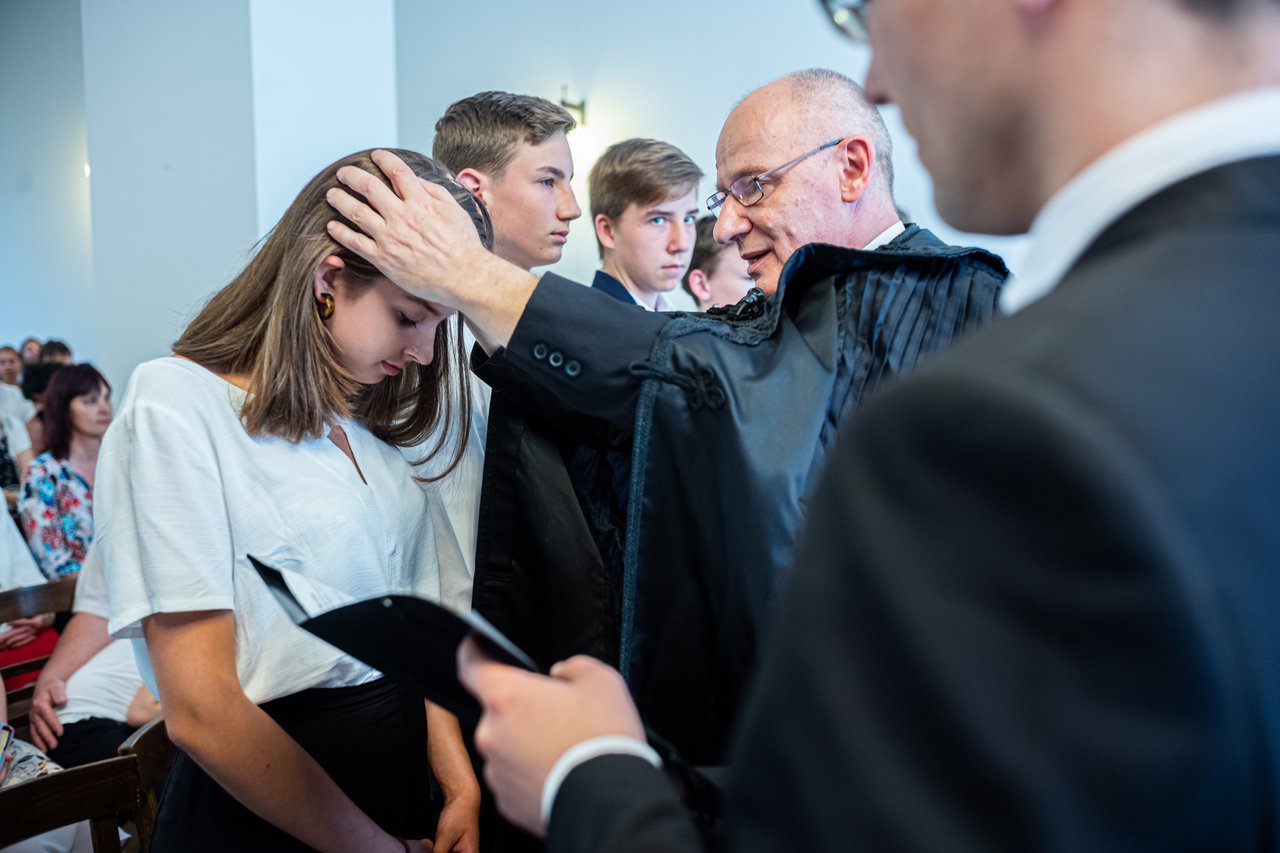
You said in a meeting, that the grace period is over. The church has to think about ways to become self-sustaining. Where are we right now in this?
The call is still valid. To be honest, I wasn’t very convincing when I tried to call attention to the fact that we have to arrive at some conclusions. For example: we have to include subsidised congregations as a category. Congregations which are in better financial condition have to support those communities, which are struggling to pay the salary of their staff. There are many beautiful Biblical examples for this. And we are completely free to do it. The time has come to help the weak to survive and the new congregations to start their journey of mission.
From our discussion, it seems to me that you are rather blaming yourself, and not listing your accomplishments.
Let’s leave that to the historians to see if I have any merit in how many new congregations formed, how many churches and parishes were built, how the number of people going to Bible study increased, how many schools and institutions we have! If I was able to help, I am thanking God and praise the Holy Spirit for the increasing blessing!
Let’s not leave the public sphere out of our discussion. You’ve emphasized the separation of the church and the state many times. How is it possible to keep a healthy distance from politics?
Distance? Who infects who? This is way easier than this, this is why the situation is more difficult. The state and the party politics work differently, than the church. People gather in parties because they have different views, and they are expressing these with political formations. Then, according to democracy, the cases are going forward, usually after long debates with consensus and deal-making. I’m indicating here that we have something to do with them, since we are citizens. However, in the church, no congregations form because of differences of view over salvation or because we are debating who can have the power of achieving salvation. The base is always the same: Christ. The political power – whether they take account of it or not – is the power of care in God’s hands, even if it makes Christians suffer or persecute them. The separated sides – the state and the church – can find common goals according to the public good, to sustain the created world and find ways to work together to fulfill those common goals. No state order is the threshold of Heaven. This is why the new, total system, liberalism thinks of the church as the enemy, because the church states with its pure existence that there was never a political view which was approved by God declaring this is what will become Heaven. This is the point of separation. The only occasion when we don’t have to obey the law is when they are trying to force us to deny Jesus Christ.
Were you ever forced to do anything?
Of course! It happened at the beginning of my bishopric service, when the Károli Gáspár University dismissed someone from the pastoral studies because of his provocative homosexuality. The then liberal government threatened that if we don’t allow this kind of behavior in the Reformed church they will eliminate the financial support of the Reformed schools. It was a huge media hunt with a lot of drama. The Bishop is still burdened by the school system, students and teachers. What will happen to them if we don’t receive their normative subsidy for their performance? With the help of God and the firmness of the Synod we were able to hold our own in this regard.
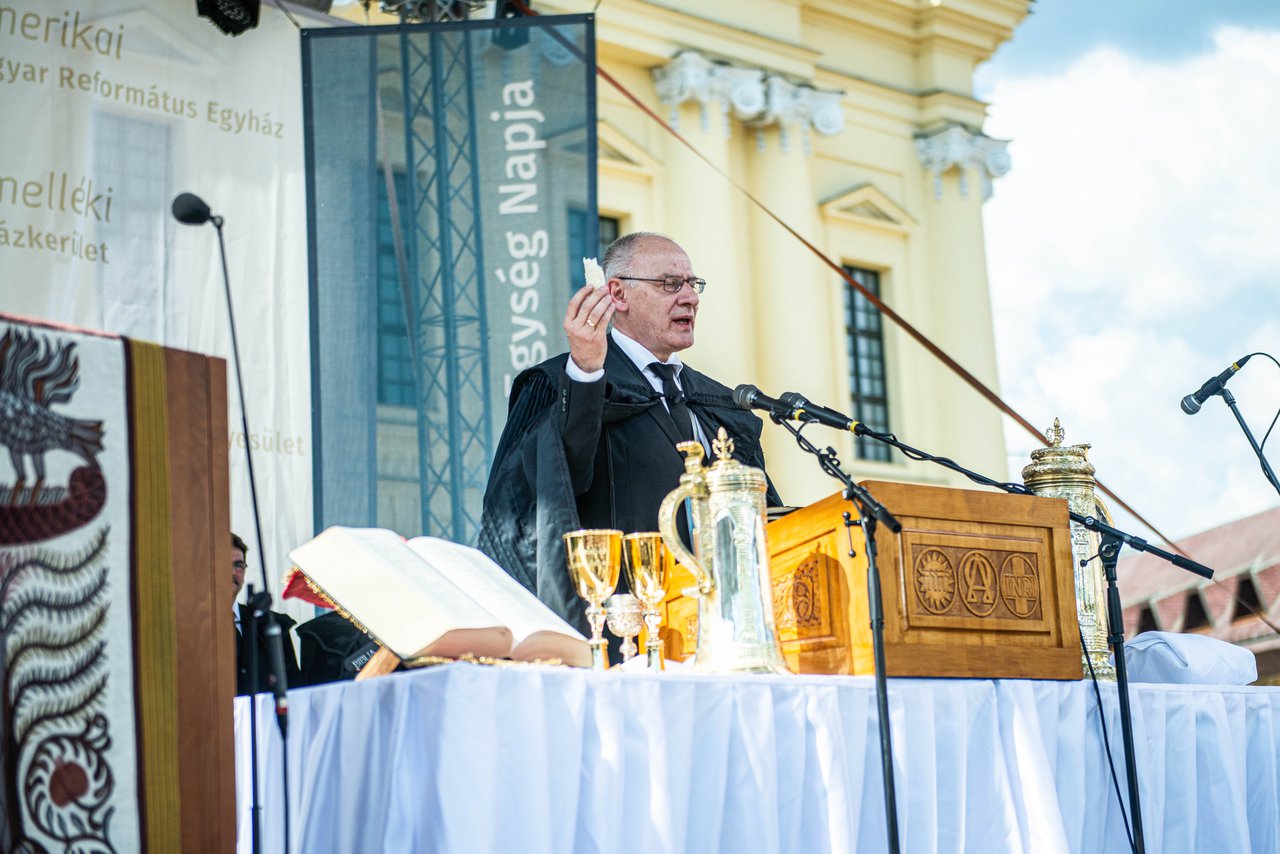
You might think of my next question as fit for the tabloids. What was the hardest during your bishopric service?
Everything.
When I asked the question, the painful losses came to my mind. Your chief elder, László Tőkéczki and deputy chief elder Béla Hegedűs passed away, and there was human disappointment as well.
I am still mourning my fellow, loyal servants. I experienced human disappointments as defeat. Many exceptional and seriously working pastors, presbyters, teachers and church workers slipped, even though the Word warns: So, if you think you are standing firm, be careful that you don’t fall! (1 Corinthians 10:12) These cases really shook me. I felt vulnerable, because who am I to judge them by human sins? However, according to the rules of the church, they can’t stay with us, because the moral responsibility applies to them too. I am deeply sorry, because we’ve lost many great people, I can’t speak with old friends anymore.
Would you share something of these?
I would rather say, people can change for good. I can imagine that those who are lost will regret what they did and will make amends and turn back. If I wouldn’t believe in this, I would lose heart, because we are talking about pastors, fellow companions, teachers and presbyters. It is possible to live a double life for a while, but it will end one day. Every disturbing case like this brought me to my knees. I asked God to give me strength, so I won’t wander onto the wrong track. So I wouldn’t think that I can get away with anything and just shrug and say: “And what about it?”
Let’s talk about the counterpart of the former question: what made you very happy?
These are mostly personal. I am happy that I have an intimate relationship with my congregation. I am grateful that I don’t have to stop teaching. It fills me with a positive feeling that I could include a little academic work in my time. It always gave my joy when I imagined that there are savages waiting for me, but they turned out to be people who love me very much. I’ve found exceptional fellow servants and at the same time true friends in hard times. I am grateful for my wife’s serene loyalty, my children who grew up well and my grandchildren are wonderful. I am also happy that our life wasn’t ruined. I am quoting a verse Bonhoeffer’s beautiful poem with gratitude: by loving forces silently surrounded.
And in terms of the church?
I am happy about the renewal of tired pastors and the growing congregations. I am grateful that we are free and that I don’t have to say to the following generation that you are the last ones, there won’t be a church. I am happy that a big part of the political leadership is the friend of the church. I am happy that although it is only with great difficulty that we were able to solve and fight external and internal crises, we were able to learn lessons from these. I thank God that Hungary is not at war, but I am especially thankful that the Kingdom of God will surely come.
What advice would you give to your successor? At this moment we don’t know if Zoltán Balogh or Péter Balla will be the next bishop in your church district and it will be decided in February 2021 who the ministeral president of the Synod will be.
I didn’t receive any advice from my predecessor from Dunamellék district or from the Synod; they only gave me the key to their office. I would like to give more than that, whole-heartedly. Whoever will sit in the bishopric chair, I would like to ask them to love those who are trusted to them by the Lord, even if they are hard to love sometimes. Keep in mind, that it’s not power he received, but a commission. Take more time than I did for spiritual discussions with his fellow servants. Pray more than I did. Love to preach more than I did! The apostle writes to Timothy, that those who wish for bishopric service, they wish for a good thing. Then he lists in detail how the Bishop can be a good person. So, this service won’t ruin you, it will educate you to be the child of God. Live with a clean conscience and you will always find peace in God’s grace and faithfulness. A lot of people have prayed for me and a lot will pray for him too. I will be among them. Above all: the mandate will expire one day, but the invitation to heavenly life is eternal.
